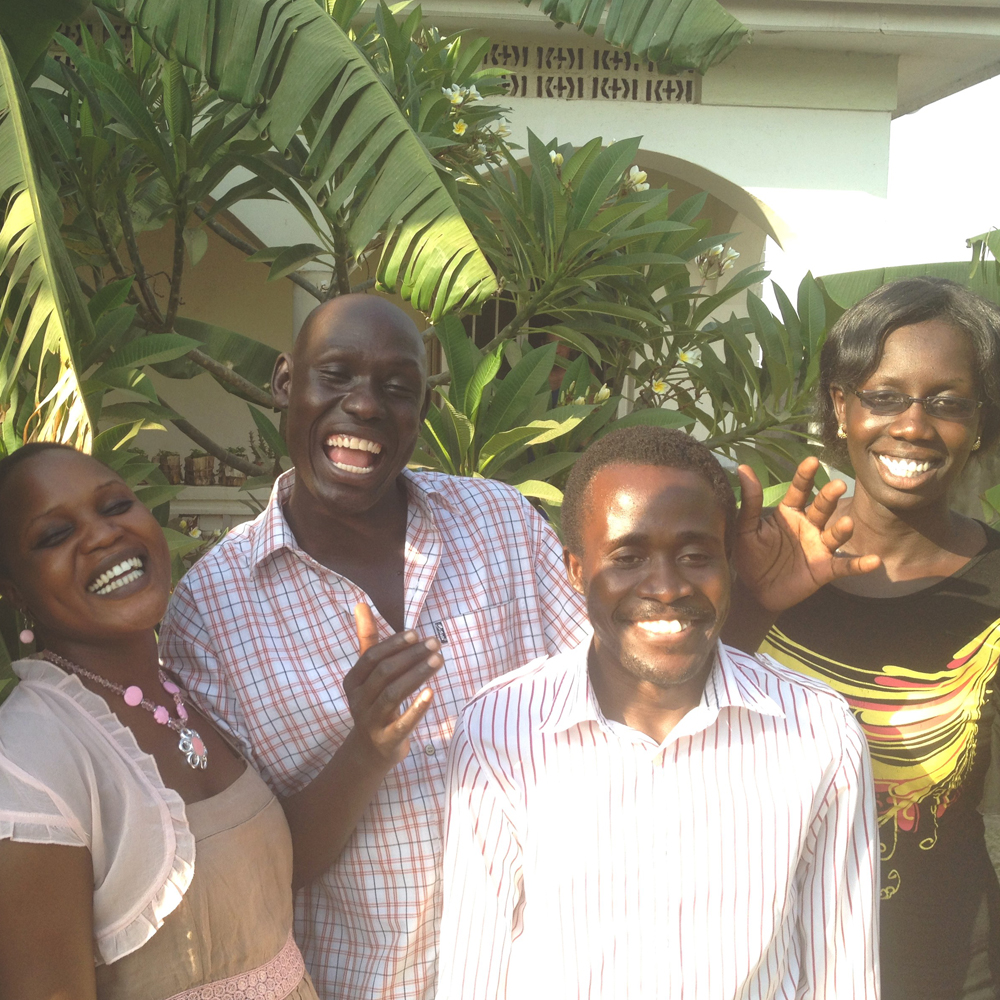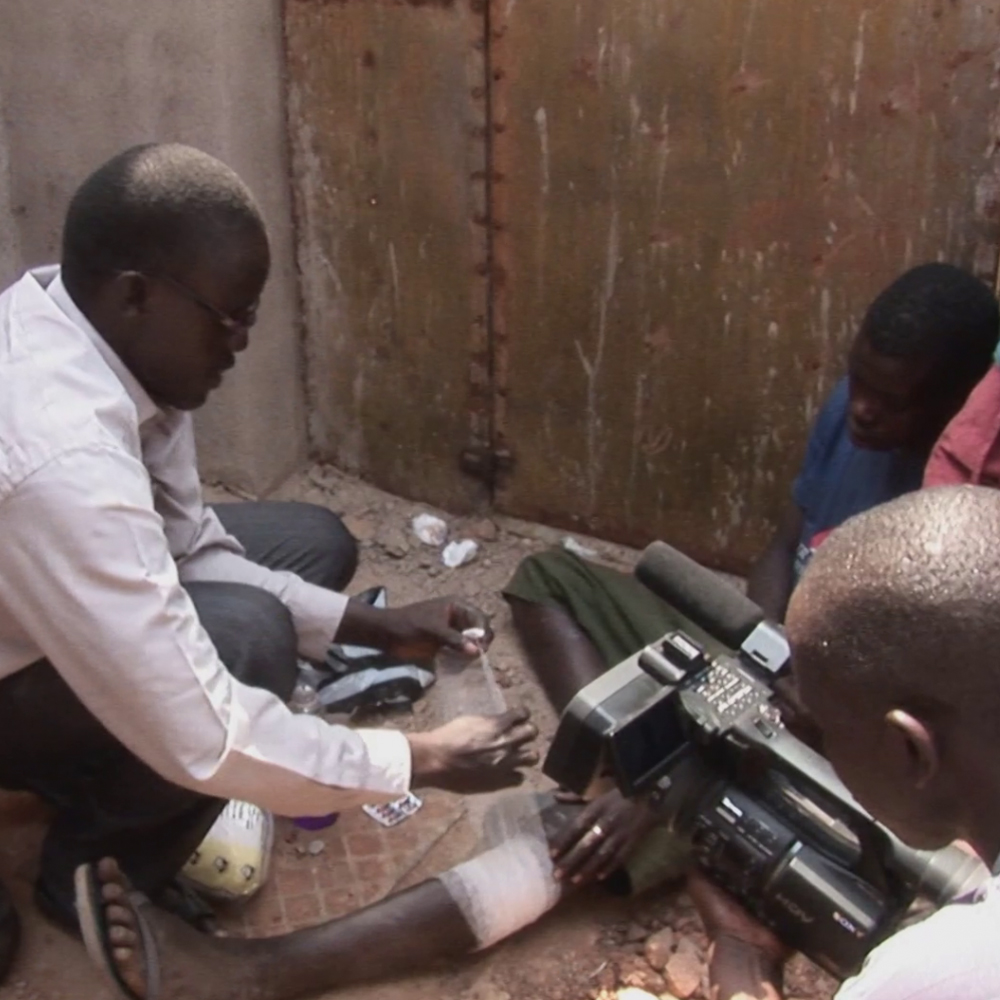COME, I’LL SHOW YOU
FIVE SOUTH SUDANESE FILMMAKERS
After independence was gained in 2011, South Sudan experienced its “zero hour.” Despite the enormous challenges facing the state, the people of South Sudan—especially the young people—looked towards the future with confidence. In the JUBA YOUTH project, five South Sudanese filmmakers tell stories about growing up in their country—about the desires, goals, and visions they have for themselves and their young republic.
 
In case your browser doesn’t allow the video to be automatically available, please click here to be re-directed to YouTube: MAKING OF JUBA
COME, I’LL SHOW YOU
FIVE SOUTH SUDANESE FILMMAKERS
After independence was gained in 2011, South Sudan experienced its “zero hour.” Despite the enormous challenges facing the state, the people of South Sudan—especially the young people—looked towards the future with confidence. In the JUBA YOUTH project, five South Sudanese filmmakers tell stories about growing up in their country—about the desires, goals, and visions they have for themselves and their young republic.
 
In case your browser doesn’t allow the video to be automatically available, please click here to be re-directed to YouTube: MAKING OF JUBA

COME, I’LL SHOW YOU THE
FILMMAKERS
| Director of Photography | Sebastian Prams, Hakim George |
| Editor | Christian R, Timmann |
| Sound Design | Jana König |
KOMM, ICH ZEIG DIR DIE
FILMEMACHER
Director of Photography
Sebastian Prams, Hakim George
Editor
Christian R, Timmann
Sound Design
Jana König

COME, I’LL SHOW YOU THE
FILM INFORMATION
| Type | Documentary |
| Length | 24:10 min. |
| Language | Arabic / English with English or German subtitles |
| Country of origin | South Sudan / Germany |
| Year | 2013 |

COME, I’LL SHOW YOU THE
FILM INFORMATION
Type
Documentary
Length
24:10 min.
Language
Arabic / English with English or German subtitles
Country of origin
South Sudan / Germany
Year
2013
COME, I’LL SHOW YOU THE COUNTRY OF ORIGIN
SOUTH SUDAN
South Sudan (officially the Republic of South Sudan) gained its independence from the Republic of Sudan in the north in 2011 and is the most recently recognised sovereign state in Africa. The country borders Ethiopia, Kenya, Uganda, Democratic Republic of the Congo, and the Central African Republic. The capital city is Juba. English is the official language, but Arabic and many other languages are also spoken.
>/br>
A struggle for governmental power led to a civil war between 2013 and 2018, the effects of which can still be felt. About two thirds of the approximately 13 million inhabitants cannot read or write, and more than half of the population lives below the poverty line.
>/br>
Journalists in South Sudan regularly face threats, assault and intimidation efforts. Criticism of the government and its agencies is poorly tolerated. Since fighting began in 2013, the situation has worsened: many journalists were forced to flee from the violence, and many news outlets had to cease operations. On the 2020 World Press Freedom Index published by Reporters without Borders, South Sudan ranked 138th out of 180 countries.
COME, I’LL SHOW YOU THE COUNTRY OF ORIGIN
SOUTH SUDAN
South Sudan (officially the Republic of South Sudan) gained its independence from the Republic of Sudan in the north in 2011 and is the most recently recognised sovereign state in Africa. The country borders Ethiopia, Kenya, Uganda, Democratic Republic of the Congo, and the Central African Republic. The capital city is Juba. English is the official language, but Arabic and many other languages are also spoken.
>/br>
A struggle for governmental power led to a civil war between 2013 and 2018, the effects of which can still be felt. About two thirds of the approximately 13 million inhabitants cannot read or write, and more than half of the population lives below the poverty line.
>/br>
Journalists in South Sudan regularly face threats, assault and intimidation efforts. Criticism of the government and its agencies is poorly tolerated. Since fighting began in 2013, the situation has worsened: many journalists were forced to flee from the violence, and many news outlets had to cease operations. On the 2020 World Press Freedom Index published by Reporters without Borders, South Sudan ranked 138th out of 180 countries.

